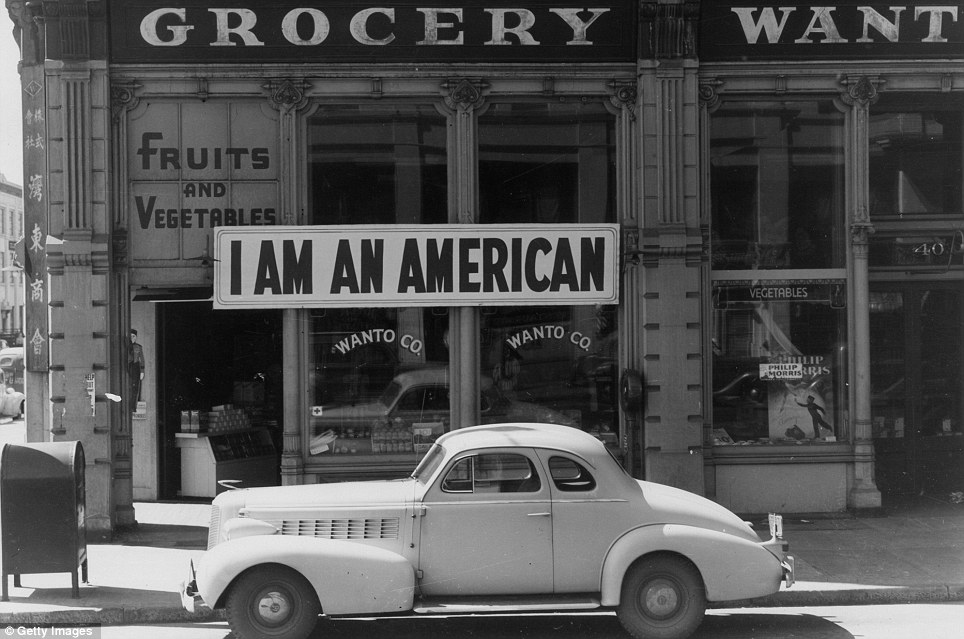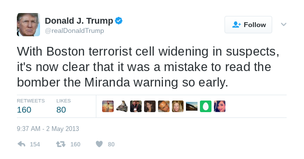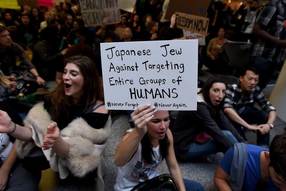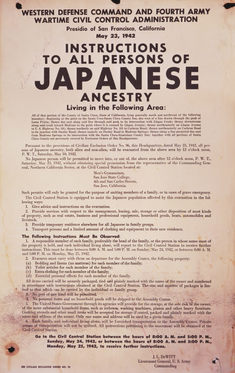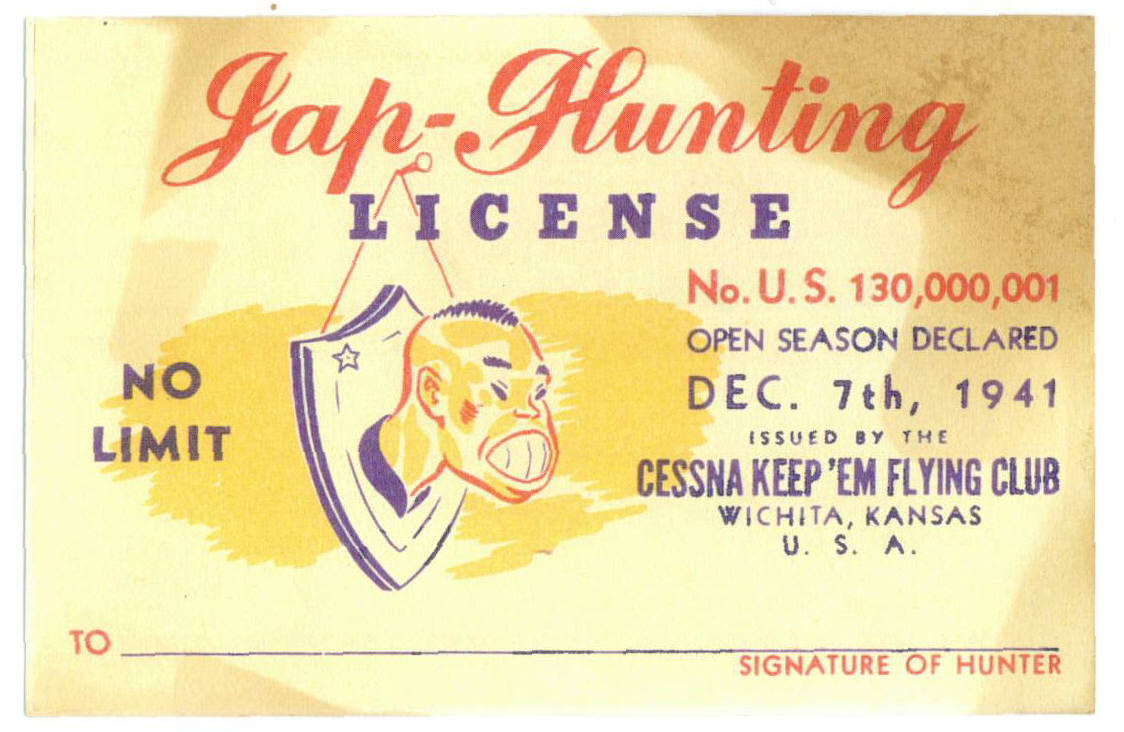"None of these people had been charged with a crime against the government, two-thirds of whom were American citizens, and many of whom even fought for the United States." |
On January 20th, 2017, Donald Trump was sworn in as the 45th President of the United States of America. However, this is not to say the country he is meant to be governing is accepting him into the role.
One of the many targets of these tweets, or even speeches that Trump would send out, was people following the Islam religion, or people from majority-Muslim countries.
These accounts of hate speech by a person of such influence could be the reason for the recent spike in violence against Muslims, as there is now public validation for their actions from the president himself. According to The New York Times, hate crimes against Muslim Americans is at its highest since the time following the 9/11 attacks.
According to Georgetown University’s The Bridge Initiative, there was a large surge in attacks against Muslims in December 2015. In just that month, there were 53 attacks, 17 targeting mosques and Muslim schools, and 5 targeting Muslim homes.
Though, Muslims have been mistreated long before now. The mistreatment of Muslim people in the United States is a common occurrence. There have been many instances of hate crimes against Muslims, one such example being Muslim women having their hijabs torn off.
Muslims are often discriminated against due to the idea that they are inherently terrorists, and that their religion is violent. People have expressed sentiment regarding why they believe the religion to be bad or dangerous, including the idea that Muhammad promoted violence, the belief that Muslims are terrorists, and simply that they are not followers of the Christian faith.
As a result of this fear and hatred, people have attempted to drive Muslims out of the country through numerous assaults, incidents of verbal harassment, and even using hung pigs to drive Muslims out.
These accounts of hate speech by a person of such influence could be the reason for the recent spike in violence against Muslims, as there is now public validation for their actions from the president himself. According to The New York Times, hate crimes against Muslim Americans is at its highest since the time following the 9/11 attacks.
According to Georgetown University’s The Bridge Initiative, there was a large surge in attacks against Muslims in December 2015. In just that month, there were 53 attacks, 17 targeting mosques and Muslim schools, and 5 targeting Muslim homes.
Though, Muslims have been mistreated long before now. The mistreatment of Muslim people in the United States is a common occurrence. There have been many instances of hate crimes against Muslims, one such example being Muslim women having their hijabs torn off.
Muslims are often discriminated against due to the idea that they are inherently terrorists, and that their religion is violent. People have expressed sentiment regarding why they believe the religion to be bad or dangerous, including the idea that Muhammad promoted violence, the belief that Muslims are terrorists, and simply that they are not followers of the Christian faith.
As a result of this fear and hatred, people have attempted to drive Muslims out of the country through numerous assaults, incidents of verbal harassment, and even using hung pigs to drive Muslims out.
Japanese Americans were severely persecuted during World War II, especially following the attacks on Pearl Harbor, despite most of the people who were attacked being of Japanese descent.
According to University of Hawaii, by the time of the attacks, 40% of Oahu’s population was Japanese. Nonetheless, these Japanese-Americans were then labelled as a race of traitors and spies, torn from their homes, and forced into internment in 10 camps throughout the United States, for nothing other than their ethnicity.
According to University of Hawaii, by the time of the attacks, 40% of Oahu’s population was Japanese. Nonetheless, these Japanese-Americans were then labelled as a race of traitors and spies, torn from their homes, and forced into internment in 10 camps throughout the United States, for nothing other than their ethnicity.
| This was through Executive Order 9066, which ordered that all people of Japanese descent were to report to the government and eventually be relocated to internment camps, along with their families. This order was signed by President Franklin D. Roosevelt on February 19th, 1942. The Japanese were given a notice addressed, “instructions to all persons of Japanese ancestry”, detailing what areas they were to be evacuated from, |
and how they would not be allowed to leave once relocated to the camps. This forced over 110,000 Japanese Americans out of their homes, which were then taken by the government. None of these people had been charged with a crime against the government, two-thirds of whom were American citizens, and many of whom even fought for the United States. (No person of Asian descent was allowed to apply for citizenship at the time, and so only their children were considered as such, due to the Alien Land Law.)
(such as in Madame Butterfly), assault, special segregated schools, and signs saying things such as “Japs keep moving, this is a white man’s neighborhood.” There was even an organization called the Asiatic Exclusion League, focusing on Japanese Americans.
The motive for these Japanese Americans to be so severely discriminated against was very much like the motive Muslim Americans are facing today.
In recent months, Japanese Americans have been rallying in support of Muslim Americans, terrified by the similarities of today's events to what they had experienced in the past, such as the travel ban that was recently imposed upon six Muslim-majority countries, attacks on mosques (including burnings and shootings), and the proposal of a Muslim registry. As a result, Japanese Americans have been showing their support in ways like attending protests and otherwise being very vocal about the similarities, and how they will not allow the United States to treat another group with the same disdain.
According to Japanese Americans such as Jim Matsuoka, just as Muslim Americans are under an especially large amount of scrutiny on the anniversary of the 9/11 attacks, he and many other people are treated similarly on the anniversary of Pearl Harbor, despite having no connections to the attackers.
Matsuoka is among the many people of Japanese descent who are standing to protest this possible repeating of history.
The motive for these Japanese Americans to be so severely discriminated against was very much like the motive Muslim Americans are facing today.
In recent months, Japanese Americans have been rallying in support of Muslim Americans, terrified by the similarities of today's events to what they had experienced in the past, such as the travel ban that was recently imposed upon six Muslim-majority countries, attacks on mosques (including burnings and shootings), and the proposal of a Muslim registry. As a result, Japanese Americans have been showing their support in ways like attending protests and otherwise being very vocal about the similarities, and how they will not allow the United States to treat another group with the same disdain.
According to Japanese Americans such as Jim Matsuoka, just as Muslim Americans are under an especially large amount of scrutiny on the anniversary of the 9/11 attacks, he and many other people are treated similarly on the anniversary of Pearl Harbor, despite having no connections to the attackers.
Matsuoka is among the many people of Japanese descent who are standing to protest this possible repeating of history.
